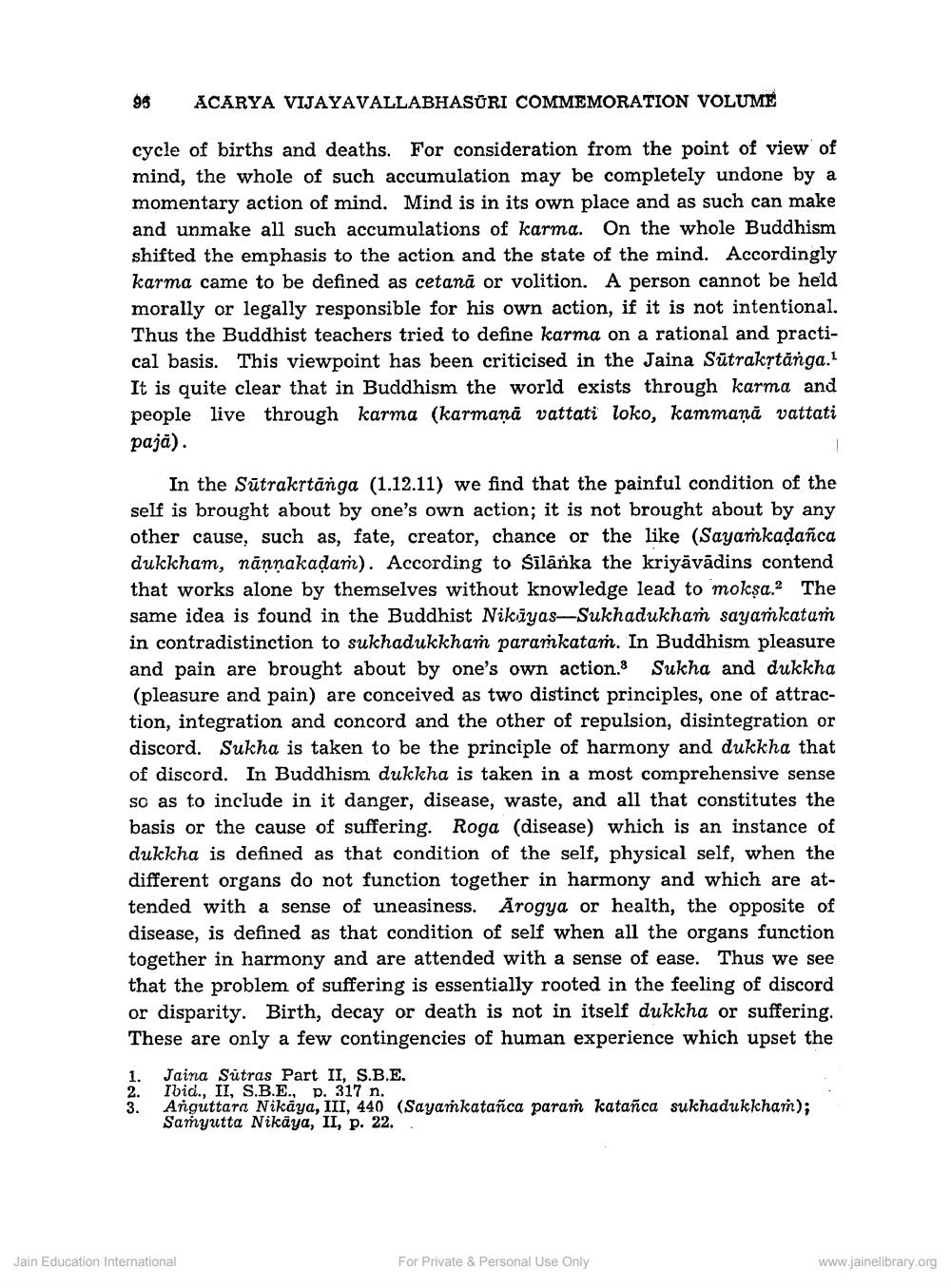________________
99
ACARYA VIJAYAVALLABHASŪRI COMMEMORATION VOLUME
cycle of births and deaths. For consideration from the point of view of mind, the whole of such accumulation may be completely undone by a momentary action of mind. Mind is in its own place and as such can make and unmake all such accumulations of karma. On the whole Buddhism shifted the emphasis to the action and the state of the mind. Accordingly karma came to be defined as cetanā or volition. A person cannot be held morally or legally responsible for his own action, if it is not intentional. Thus the Buddhist teachers tried to define karma on a rational and practical basis. This viewpoint has been criticised in the Jaina Sūtrakrtănga. It is quite clear that in Buddhism the world exists through karma and people live through karma (karmană vattati loko, kammaņā vattati paja).
In the Sūtrakrtānga (1.12.11) we find that the painful condition of the self is brought about by one's own action; it is not brought about by any other cause, such as, fate, creator, chance or the like (Sayarkadañca dukkham, nännakadań). According to Sīlänka the kriyāvādins contend that works alone by themselves without knowledge lead to moksa.2 The same idea is found in the Buddhist Nikāyas-Sukhadukham sayařkatan in contradistinction to sukhadukkham paramkataṁ. In Buddhism pleasure and pain are brought about by one's own action. Sukha and dukkha (pleasure and pain) are conceived as two distinct principles, one of attraction, integration and concord and the other of repulsion, disintegration or discord. Sukha is taken to be the principle of harmony and dukkha that of discord. In Buddhism dukkha is taken in a most comprehensive sense so as to include in it danger, disease, waste, and all that constitutes the basis or the cause of suffering. Roga (disease) which is an instance of dukkha is defined as that condition of the self, physical self, when the different organs do not function together in harmony and which are attended with a sense of uneasiness. Arogya or health, the opposite of disease, is defined as that condition of self when all the organs function together in harmony and are attended with a sense of ease. Thus we see that the problem of suffering is essentially rooted in the feeling of discord or disparity. Birth, decay or death is not in itself dukkha or suffering. These are only a few contingencies of human experience which upset the
1.
Jaina Sutras Part II, S.B.E. Ibid., II, S.B.E., p. 317 n. Anguttara Nikāya, III, 440 (Sayamkatañca paraṁ katañca sukhadukkham); Sangutta Nikāga, II, p. 22.
Jain Education International
For Private & Personal Use Only
www.jainelibrary.org




